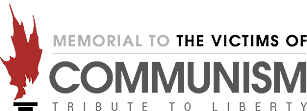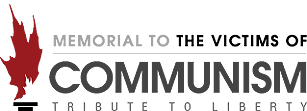
To my father, Adolf Ristau.
Willi Ristau’s Story
My name is Willi Ristau and I am very pleased and quite proud to see a monument being built in Ottawa to recognize the victims of communism. I feel privileged to have this opportunity to share my own experiences in this free country, my adopted homeland Canada.
Having lived in Waterloo region ever since my emigration in 1957, I am often asked about my nationality to which I reply that I am Latvian by birth, German by origin and Canadian by choice—with all my heart! I would like to dedicate this to my late father who, at the age of 53, was the driving force behind my family's emigration to Canada, and who started a new life for us from scratch five times over—the easiest time in Latvia and the most difficult in Canada. He often told us children that the short time spent in Latvia working the small farm given to him as a wedding present, living off the land—a simple, carefree life, was the best time of his life.
This peaceful life changed very quickly in 1939 when the Soviet Red Army invaded Latvia as a result of Russia's takeover of Latvia (Latvia had been an independent country since the 1920 Paris Peace Treaty, and is now again as I was able to witness firsthand in 1993 during a visit to the beautiful city of Riga with my son, Harold). The German Reich annexed part of Poland and the people of German origin were given the choice to leave or remain under Russian control.
During the Russian Civil War (1918-1920) the Red Communist Army marched through Latvia murdering, stealing food and burning buildings, while my parents hid themselves and their livestock deep in the woods. This experience made the choice to leave an easy one for my parents. Our life farming under German rule was prosperous but unsettled.
In 1944, my father was drafted into the German army to fight against Russia, which retreated back to Berlin and in the fall of 1945 marched by foot all the way to Moscow. Due to malnutrition, just a quarter of the prisoners of war survived, my father being one of them. However, after becoming ill in 1947 he was sent home. He told us many times how he prayed to be returned to his family of eight children, and when the good Lord granted him his wish he was grateful although very sick. It took my father six months to recover enough to work the small farm my mother had received from the large piece of land expropriated by the Communist government. Until then we had survived on bread and potatoes—we did not starve but were always hungry. Through his hard work my father managed to increase the land from six to nine hectares, yet most of the produce had to be sold to the Communist government. The Communists also told each farmer what and how much to grow and where to live and work.
After finishing grade eight, I was assigned to learn a woodworking trade. For the next three years I travelled seven km on gravel roads, four days a week, and spent two days in trade school in the city of Halle which for me was the best part of learning a trade. On June 17, 1953, a two-day rebellion against the Communist Regime ended with Russian tanks moving into the city to restore order. Many leaders of the revolt escaped to West Germany to avoid persecution but others were shot. The local Communist newspaper reported the event as the West trying to invade the East to destroy the Communist labour paradise. At this time the East German mark was worth just one quarter of the West German mark.
Meanwhile, in the 1950s, the Communist government of East Germany had decided to conglomerate the small farms to create the large, more economically viable farms of Russia. Films of beautiful Russian farms shown at town hall meetings to promote the idea were questioned by my father as he'd never seen any of these while in Russia. Those expressing opposition to the idea were picked up by police and never seen or heard from again.
In 1954, my father sent me to a youth rally in East Berlin to plan an escape route to West Germany. I was 17 and scared but enjoyed it very much as it was the first time I could remember ever having enough to eat! All day we marched through the streets chanting Communist slogans which none of us believed. At night I slipped away from camp and took the U-Bahn, the subway which circled underneath Berlin, to West Berlin which felt like heaven with its well-lit streets and shops filled with goods. I stayed just a few hours before returning. The next morning, several youths who had been caught going to West Germany as I had done were forced to publicly condemn Western ideas while the fashionable t-shirts they had purchased were burned for all to see.
One afternoon in 1954, my father announced that we would be escaping to West Berlin immediately. Taking only the clothes on our backs and three gallons of pork fat, we boarded a train first to Halle and then to East Berlin. Our family separated on the train. When questioned by the police I told them we were heading to the wedding of a relative in North Germany. When asked why the tickets went only to Berlin, I told them that I had attended a youth rally this past May and wanted to show my brother the accomplishments of the East German Communist workers. As proof of my story I pointed out the Communist shirt I was wearing, and we were let go. Others trying to escape were found and sent to labour camps.
After arriving at our friend's home in the free city of West Berlin, my father told us that if the police had wound up capturing him on the train, he would not have let them take him alive because after having the experience of brutality as a Russian prisoner of war he would rather be dead than Red! Soon we were housed in West Berlin refugee camps, and later I was grateful to attend a West German college for eight weeks.
The Democratic Constitution I learned about at this college was in direct contrast to the Communist philosophy I was forced to study to receive my journeyman papers. In East Germany we were taught that the Communists would take over the world in the near future, yet as one living in a Christian family I did not believe it. Still, we had to belong to a Communist youth group in order to graduate. In the end, the good Lord has brought me and my family to the beautiful country of Canada after wandering and living as a teenager through four different countries and four different political systems. I've told my four children often how grateful they should be to have been born in this rich country of abundance.
The good Lord has blessed me, my family and their families in more ways than we could have ever hoped or prayed for in this great, free land—the land of milk and honey!
Submitted by Willi Ristau

